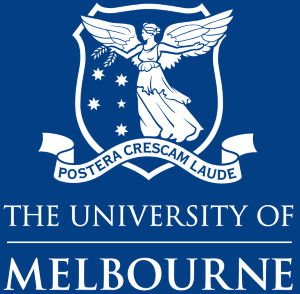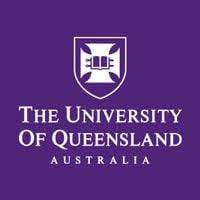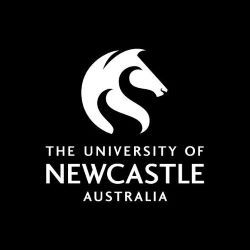Masters in Electrical Engineering in Australia
Find a Masters in Electrical Engineering in Australia to start an exciting academic journey. This two-year program will give you advanced knowledge of electrical systems, telecommunications, and renewable energy sources. You can select the best time because of several intakes throughout the year. The average tuition ranges from $25,000 to $40,000 depending on the university and specialization. Get advantage of advanced studies, industry partnerships, and a multicultural setting to advance your career in this rapidly evolving field.
Why study Masters in Electrical Engineering in Australia?
A Masters degree in Electrical Engineering in Australia is extremely valuable, providing many benefits that contribute to personal and professional development. Aspiring electrical engineers may succeed in the nation's advanced educational system, active research community, and strong industry connections. Here are some strong reasons for choosing to enroll in this program in Australia:
1. Modern Research and Education:
- Australian universities are well-known for their high-quality education and advanced studies in electrical engineering, ensuring that you receive world-class training.
- Take part in innovative research initiatives that resolve current issues and advance sustainability and technology.
2. Integration of industry and real-world experience:
- Take advantage of strong connections between academic institutions and industries, which provide opportunities for internships, co-op programs, and practical projects.
- Through industry partnerships, you can gain practical experience that will better prepare you for the demands of the job market and increase your employability.
3. Networking and Recognition Worldwide:
- International recognition of an Australian electrical engineering degree opens doors to international career opportunities.
- Interact with a diverse community of international students and faculty members to promote cross-cultural understanding and networking.
4. Innovation and entrepreneurship:
- The entrepreneurial ecosystem in Australia encourages creativity and innovation, giving you the resources you need to transform your concepts into practical solutions.
- Obtain access to incubators, innovation hubs, and startup communities to increase your chances of breaking new ground in the industry.
5. Living Standards and Cultural Diversity:
- Australians enjoy a high standard of living and a secure environment, making it a popular choice for international students.
- Develop adaptability and global perspective by involving yourself in a vibrant cultural mosaic.
Course Highlights
Find a Masters in Electrical Engineering in Australia to start an exciting academic journey. You gain advanced knowledge and useful skills in electrical systems, telecommunications, and renewable energy from this program. You'll gain the skills for a successful career in this dynamic field, from creating innovative solutions to analyzing complex systems.
Duration |
Average Fees |
Course Type |
General Eligibility |
Exams Required |
2 Years |
$25000- $40000 |
Full Time |
Bachelor's in relevant field |
IELTS/TOEFL |
- Duration: This comprehensive program spans over 2 years, ensuring a deep understanding of core concepts and specialized areas within electrical engineering.
- Average Fees: The average fees range from $25,000 to $40,000, offering value for money considering the quality of education, research opportunities, and industry connections.
- Course Type: This program is offered full-time, allowing you to fully immerse yourself in your studies and gain a comprehensive skill set.
- General Eligibility: To enroll, you need a Bachelor's degree in a relevant field, showcasing your foundation in engineering principles and mathematics.
- Exams Required: Proficiency in English is assessed through language exams like IELTS or TOEFL, ensuring your ability to excel in the program and communicate effectively in an English-speaking academic and professional environment.
Types of Masters in Electrical Engineering in Australia
The specialization of Electrical Engineering offers diverse pathways within Australia's academic landscape, catering to various interests and career goals. Students can choose from a range of programs that provide in-depth knowledge and expertise in specific areas of electrical engineering. For example:
- Masters in Power Systems: Focuses on the design, analysis, and optimization of power generation, distribution, and transmission systems.
- Masters in Telecommunications Engineering: Explores advanced communication technologies, wireless systems, network design, and data transmission.
- Masters in Renewable Energy Engineering: Specializes in sustainable energy sources, including solar, wind, and hydropower systems, addressing the global demand for clean energy solutions.
- Masters in Control Systems Engineering: Delves into the design and implementation of control systems for automation, robotics, and industrial processes.
- Masters in Electronics Engineering: Concentrates on electronic circuit design, semiconductor technology, and digital systems.
- Masters in Signal Processing: Focuses on digital signal analysis, image processing, and audio signal enhancement.
Best Universities for Masters in Electrical Engineering in Australia
Explore the top 10 Australian universities that provide outstanding Masters programs in Electrical Engineering to start your journey of excellence. These organizations are well-known for their academic excellence, innovative studies, and business connections.
University |
World Ranking |
Programs Offered |
Admission Deadlines |
Average Fees |
University of Melbourne |
1st |
Master of Electrical Engineering |
Dec-31 |
$30,000 |
University of New South Wales |
2nd |
MSc in Electrical Engineering |
Nov-30 |
$35,000 |
Monash University |
7th |
Master of Advanced Engineering (Electrical) |
Oct-15 |
$28,000 |
University of Sydney |
9th |
Master of Engineering (Electrical) |
Dec-15 |
$32,000 |
University of Queensland |
14th |
MEng in Electrical Engineering |
Nov-30 |
$29,000 |
University of Western Australia |
16th |
Master of Electrical Engineering |
Nov-15 |
$26,000 |
Australian National University |
17th |
MEng in Electrical and Electronic Engineering |
Oct-31 |
$31,000 |
University of Adelaide |
21st |
Master of Electrical Engineering |
Dec-01 |
$27,000 |
University of Technology Sydney |
23rd |
MSc in Electrical Engineering |
Nov-30 |
$34,000 |
Queensland University of Technology |
27th |
Master of Engineering (Electrical Engineering) |
Oct-31 |
$30,000 |
Eligibility Criteria for Masters in Electrical Engineering in Australia
Following is the eligibility criteria for Masters in Electrical Engineering in Australia:
- Bachelor's degree in a relevant field
- Minimum GPA requirement (varies by university)
- Proficiency in English (IELTS/TOEFL scores)
- Letters of recommendation
- Statement of purpose
- Academic transcripts
- Resume/CV
- Relevant prerequisite courses (if applicable)
- Relevant work experience (if applicable)
- Application fee (if required)
Admission Requirements for Masters in Electrical Engineering in Australia
To pursue a Masters in Electrical Engineering in Australia, there are specific admission requirements that prospective students need to meet. These requirements ensure that applicants have the necessary background and qualifications to succeed in the program.
1. Academic Qualifications:
- A Bachelor's degree in a relevant field such as Electrical Engineering or a related discipline is typically required.
- Some universities may specify a minimum Grade Point Average (GPA) as part of their admission criteria.
2. English Language Proficiency:
- International students are often required to demonstrate English language proficiency through standardized tests such as IELTS or TOEFL.
- Minimum required scores vary by university but usually fall within a specific range.
3. Documents Required:
- Official academic transcripts from all previous institutions attended.
- Letters of recommendation from academic or professional contacts.
- A well-crafted Statement of Purpose (SOP) outlining your academic and career goals.
- A current Resume or Curriculum Vitae (CV) detailing your educational and professional background.
4. Relevant Prerequisite Courses:
- Some universities may require the completion of specific prerequisite courses to ensure foundational knowledge in key areas.
5. Work Experience (if applicable):
- While work experience is not always mandatory, relevant professional experience can strengthen your application.
6. Entrance Exams:
- Some universities may require standardized entrance exams such as the Graduate Record Examination (GRE) as part of the application process.
7. Application Fee:
- Universities may charge a non-refundable application fee to cover the cost of processing your application.
8. Visa Requirements:
- International students must obtain a student visa to study in Australia. Visa requirements may include proof of admission, financial capacity, health insurance, and more.
Admission Process for Masters in Electrical Engineering in Australia
Securing admission for a Masters in Electrical Engineering in Australia involves a series of steps that ensure a seamless application process and enhance your chances of acceptance.
- Research and Choose Universities: Explore universities offering the program, considering factors like course content, faculty expertise, and location.
- Check Eligibility: Review each university's admission criteria, including academic qualifications, English language proficiency, and any specific prerequisites.
- Prepare Documents: Gather essential documents such as academic transcripts, letters of recommendation, Statement of Purpose (SOP), and your Resume/CV.
- Entrance Exams (if required): Prepare and register for required entrance exams such as IELTS, TOEFL, or GRE.
- Online Application: Complete the online application form provided by the university, ensuring accuracy and completeness.
- Submit Documents: Upload all required documents, including transcripts, SOP, letters of recommendation, and exam scores.
- Pay Application Fee: If applicable, submit the required application fee to process your application.
- Visa Application: Once accepted, apply for a student visa to study in Australia. Provide necessary documents and fulfill visa requirements.
- Acceptance and Enrollment: Upon receiving an acceptance letter, confirm your enrollment by following the university's instructions.
- Pre-Departure Preparation: Plan for your arrival in Australia, including accommodation, travel arrangements, and financial arrangements.
By following these steps diligently and meeting all requirements, you increase your chances of securing admission to your chosen Masters in Electrical Engineering program in Australia. It is crucial to adhere to deadlines, ensure accurate documentation, and seek guidance if needed to ensure a smooth and successful admission process.
Cost of Studying for Masters in Electrical Engineering in Australia
Australia offers a diverse range of Masters in Electrical Engineering programs, each tailored to provide specialized knowledge and skills. Here are some courses along with their education level and approximate fees:
1. Master of Electrical Engineering - University of Melbourne'
Level: Masters
Fees: $30,000
2. MSc in Electrical Engineering - University of New South Wales
Level: Masters
Fees: $35,000
3. Master of Advanced Engineering (Electrical) - Monash University
Level: Masters
Fees: $28,000
4. Master of Engineering (Electrical) - University of Sydney
Level: Masters
Fees: $32,000
5. MEng in Electrical Engineering - University of Queensland
Level: Masters
Fees: $29,000
Pre-Arrival Costs: Before arriving in Australia, prospective students should consider various expenses, including:
IELTS Exam Fees: Around $250.
Visa Application Fees: Vary depending on the type of visa, approximately $620 for a Student Visa (Subclass 500).
Health Insurance: Compulsory for international students, costs around $500 per year.
Overseas Student Health Cover (OSHC): Required for health care, costs vary by provider and coverage.
Airfare: The cost of flights to Australia varies based on location and time of booking.
Planning for these pre-arrival costs is crucial to ensure a smooth transition and successful start to your Masters in Electrical Engineering journey in Australia. It is recommended to research and budget for these expenses to make informed financial decisions.
Scholarships for Masters in Electrical Engineering in Australia
Explore various scholarships that can financially support your pursuit of a Masters in Electrical Engineering in Australia. These opportunities recognize academic excellence, research potential, and contribution to the field. Here are some scholarships:
Scholarship |
Eligibility |
Deadline |
Scholarship Amount |
Australia Awards |
Varies by country |
Varies |
Full tuition, living allowance, travel expenses |
Endeavour Scholarships |
Open to international applicants |
Varies |
Up to $15,000 for tuition and living expenses |
University-specific Scholarships |
Varies by institution |
Varies |
Varies based on merit and need |
- Australia Awards: Offered by the Australian government, these awards provide full financial support, covering tuition, living expenses, and travel costs.
- Endeavour Scholarships: Open to international applicants, these scholarships offer financial support of up to $15,000 for tuition and living expenses.
- University-specific Scholarships: Many universities offer their own scholarships based on academic merit and financial need, providing varying levels of financial assistance.
Job Scope for Masters in Electrical Engineering in Australia
Graduates of a Masters in Electrical Engineering program in Australia are well-equipped to pursue a wide range of rewarding career opportunities across various industries. Their expertise in advanced electrical systems, innovation, and problem-solving makes them highly sought after. Here are some potential job roles:
- Electrical Engineer
- Control Systems Engineer
- Telecommunications Specialist
- Power Systems Analyst
- Renewable Energy Engineer
- Electronics Design Engineer
- Instrumentation Engineer
- Research Scientist
- Project Manager
Average Salary Table:
Job Role |
Average Salary (AUD) |
Electrical Engineer |
$85,000 - $110,000 |
Control Systems Engineer |
$90,000 - $120,000 |
Telecommunications Specialist |
$95,000 - $130,000 |
Power Systems Analyst |
$85,000 - $110,000 |
Renewable Energy Engineer |
$85,000 - $120,000 |
Electronics Design Engineer |
$80,000 - $105,000 |
Instrumentation Engineer |
$80,000 - $110,000 |
Research Scientist |
$95,000 - $130,000 |
Project Manager |
$90,000 - $125,000 |
These figures represent average salaries, which can vary based on factors such as location, years of experience, and the specific employer. Graduates can expect competitive compensation packages and the opportunity to contribute to innovative projects that shape the future of technology and engineering.
- Level of study
- Streams
- Countries
- Cities
- Fees
- Exams Accepted
- Course Duration
- Masters
- Clear All

Master of Engineering in Electrical Engineering
Australian National University, Australia
This two-year master qualification provides students with specialised knowledge and professional engineering skills to prepare them for a career in the broad context of electrical engineering. The program builds on ANUs interdisciplinary engineering focus and research expertise to give students the required skills to address complex multi-disciplinary problems, while at the same time providing advanced technical knowledge in one or more of the fields of power systems, renewable energy, telecommunications systems and mechatronic systems by including specialised courses in these fields. Students also can select computer science technical courses, breadth courses, and elective courses across the University.
DURATION
2 YearsFEES
INR 30.42L/yrEXAMS
IELTS-6.5INTAKE SESSION
FEB 2025

Master of Electrical Engineering
The University of Melbourne, Australia
From energy efficient power grids to life-changing medical devices - design and manage the electrical systems powering our lives with the Master of Electrical Engineering at Australia's top university. You'll develop unique skills that will allow you to build and improve our power and telecommunications systems and develop future electronic and autonomous devices. Be guided by renowned academics in communications and networks, control and signal processing through to power and energy systems. Our electrical engineers are working on state-of-the-art models and tools for our future energy systems, automated irrigation networks, energy efficient wireless communications and nano-electronics.
DURATION
3 YearsFEES
INR 109.40L (Total)EXAMS
IELTS-6.5INTAKE SESSION
FEB 2025

Master of Engineering (Electrical Engineering)
The University of Sydney, Australia
The Master of Engineering (Electrical Engineering) offered by University of Sydney is an advanced Masters course designed for students aspiring to become professionals in Electrical Engineering. Students will gain hands-on experience through practical exercises and real-world projects, allowing them to apply the concepts learned in class. The curriculum is carefully designed to ensure that students develop a strong foundation in Electrical Engineering and acquire the skills needed to solve complex problems in the industry. Upon completion of this course, students will be well-prepared to tackle the challenges of Electrical Engineering and pursue rewarding career opportunities such as Electrical Design Engineer, Power Systems Engineer, Controls Engineer, Electronics Hardware Engineer.
DURATION
1 Year 6 MonthsFEES
INR 28.08L/yrEXAMS
-INTAKE SESSION
FEB 2025

Master of Philosophy in (Information Technology) & Electrical Engineering
The University of New South Wales, Australia
The Master of Philosophy (MPhil) consists of an examinable coursework component and thesis comprising 72 Units of Credit: A program of advanced study, comprising 18-24 Units of Credit of coursework makes up the remainder of the program. The coursework component will normally comprise three or four courses selected from the Coursework Masters offering for the relevant discipline and approved by the Head of School. Candidates may undertake interdisciplinary studies subject to approval. A thesis embodies the result of an original investigation, design or engineering development. The thesis shall not exceed more than 40,000 words on an approved topic to the value of 48 - 54 units of credit
DURATION
1 Year 7 MonthsFEES
INR 64.13L (Total)EXAMS
IELTS-6.5INTAKE SESSION
FEB 2025
More courses at The University of New South WalesView All
DURATION
1 Year 6 MonthsFEES
INR 42.10L/yrEXAMS
IELTS-6.5
DURATION
2 YearsFEES
INR 64.41L (Total)EXAMS
IELTS-6.5
DURATION
2 YearsFEES
INR 64.41L (Total)EXAMS
IELTS-6.5
DURATION
2 YearsFEES
INR 64.41L (Total)EXAMS
IELTS-6.5

Master of Electrical Engineering (Professional)
The University of Queensland Australia, Australia
Prepare to solve global problems by advancing your skills and knowledge in electrical engineering. The Master of Electrical Engineering (Professional) degree will develop your technical and research skills, provide a global perspective on professional engineering practice and give you the competence to identify and apply current practice to solve real-world engineering problems. As part of this program you will complete a 2-semester research project or industry placement giving you invaluable experience in developing, managing and delivering complex projects.
DURATION
2 YearsFEES
INR 30.64L/yrEXAMS
IELTS-6.5INTAKE SESSION
FEB 2025

Master of Engineering (Electrical Engineering)
University of Wollongong, Australia, Australia
The Master of Engineering (Electrical) provides graduate engineers with discipline-specific knowledge and technical skills in electrical engineering, including renewable energy and high-voltage systems. You will learn how electrical energy is produced and used in domestic, commercial and industrial buildings. You will gain advanced knowledge in designing and building systems that generate, transmit, control and use electrical energy. Areas include wireless engineering, high voltage engineering, and digital integrated circuit design. The program will suit you if you're an engineering graduate wanting specialist knowledge in the latest power engineering technologies, or seeking a career change in this sector. This degree The Master of Engineering delivers expert skills and applied competencies required for the professional engineer. It is designed to train and enhance professional practice, advance technical and specialist skills, and provide an opportunity to put theory into practice with applied projects and research. The degree also delivers communication, strategic and project management skills essential to the practising engineer. What you will study You will complete the core subjects in Professional Communications and Engineering Workplace Practice, Innovation and Design, Advanced Laboratory, and Research Methods. For the Electrical major you will study subjects in Advanced Signals and Systems, Power System Analysis, Renewable and Distributed Generation, plus electives from Electrical, Computer, Mechanical or Engineering subjects. You will also complete an advanced project.
DURATION
2 YearsFEES
INR 50.51L/yrEXAMS
IELTS-6.5INTAKE SESSION
FEB 2025
More courses at University of Wollongong, AustraliaView All
DURATION
1 YearFEES
INR 50.51L/yrEXAMS
IELTS-6.5

Master of Engineering (Electrical Engineering)
RMIT University, Australia
As part of your studies in the Master of Engineering (Electronic Engineering), you will study subjects that go beyond the theory of recent engineering developments.
Areas of study include:
- electronic circuit design
- integrated circuit design and fabrication
- embedded electronics
- electronics control systems
- computer systems electronics
- microelectromechanical systems (MEMS)
- micro/nanoscale device design and fabrication
- sensors and actuators.
This degree also has a focus on developing your technical, personal and business skills. As a result, you will be well equipped for leadership roles in business and industry. Qualified technologists with relevant industrial experience are encouraged to apply.
DURATION
2 YearsFEES
INR 26.27L/yrEXAMS
IELTS-6.5INTAKE SESSION
FEB 2025

Master of Philosophy (Electrical Engineering)
The University of Newcastle, Australia, Australia
DURATION
2 YearsFEES
INR 48.87L/yrEXAMS
IELTS-6.5INTAKE SESSION
-
Recommended articles for you
TRENDING SEARCHES
- Study in Australia
- Universities in Australia
- Courses in Australia
- Masters in Australia
- Bachelors in Australia
- La Trobe University
- University of Adelaide
- Griffith University
- Melbourne Institute Of Technology
- Deakin University
- RMIT University
- Macquarie University
- The University of Melbourne Acceptance Rate
- UTS College Acceptance Rate
- Monash University
- Carnegie Mellon University
- University of Queensland
- Curtin University
- University of Sydney
- University of Melbourne
- University of Wollongong
- Flinders University
- Western Sydney University
- Public Health Courses in Australia
- Nursing Courses in Australia
- Medical Courses in Australia
- Project Management Courses in Australia
- Social Work Courses in Australia
- Cyber Security Courses in Australia
- Digital Marketing Courses in Australia
- Hotel Management Courses in Australia
- Diploma in Nursing in Australia
- Teaching Courses in Australia
- Accounting Courses in Australia
- Psychology Courses in Australia
- Bachelors in Mechanical Engineering in Australia
- Bachelors in Nursing in Australia
- Bachelors in Computer Science in Australia
- Bachelors in Information Technology in Australia
- Bachelors in Psychology in Australia
- Masters in Supply Chain Management in Australia
- Masters in Computer Science in Australia
- Masters in Pharmacy in Australia
- Masters in Nursing in Australia
- Masters in Engineering Management in Australia
- Masters in Social Work in Australia
- MS in Australia
- Masters in Business Analytics in Australia
- Masters in Data Science in Australia
- Masters in Education in Australia
- Masters in Management in Australia
- Masters in Project Management in Australia
- Masters in Psychology in Australia
- Masters in Construction Management in Australia
- Masters in Information Technology in Australia
- Masters in Public Health in Australia
- University of Sydney Courses
- Monash University Courses
- Flinders University Courses
- Curtin University Courses
- University of Queensland Courses
- Edith Cowan University Courses
- Western Sydney University Courses
- Griffith University Courses
- University of Melbourne Courses
- Duolingo English Test Accepted University
- Duolingo Accepted University In Australia
- GMAT Exam
- Gmat Exam Syllabus
- The Need To Belong IELTS Reading Answers
- Duolingo Test Fees
- Duolingo English Test
- ACT Exam
- A Spark A Flint IELTS Reading Answers
- Cleaner Abundant IELTS Reading Answers
- Duolingo Language Certificate
- Animal Camouflage IELTS Reading Answers
- SAT Exam
- Describe A Good Law In Your Country IELTS Cue Card
- Population Movements And Genetics IELTS Reading Answers
- Mba Without GMAT In UK
- Duolingo Accepted Universities In Canada For 2023
- List Of Universities That Waived Off Gre For Fall 2023
- Usmle Centers In India
- GRE Documents Required
- A Song In The Brain IELTS Reading Answers
- SAT Exam Syllabus For Indian Students
- PTE Exam
- OET Test
- Difference between Duolingo and IELTS
- Gmat Eligibility
- Gmat Fees
- GRE Exam
- GRE Exam Syllabus
- MBA in Australia Cost
- Best Universities in Australia
- Study in Ireland
- Study in Finland
- Why Study in Australia
- SOP for Australia
- Cost of Study in Australia
- Masters in Artificial Intelligence in Australia
- Masters in Cyber Security Australia
- Study in Australia
- Study in Germany
- How Much Gap Is Accepted for Study in Australia
- Study in Canada
- Top Cities of Australia
- How to Study in Australia from India
- Requirements for Studying in Australia
- Exams for MS in Australia
- Cost of Living in Australia
- Sample SOP for Australia
Disclaimer
All information provided on this page is for general use and upGrad Abroad is not responsible for any errors or omissions. The Universities involved in this Program are accredited/recognized in the countries where they are established. Relevant terms and conditions apply.Any action taken upon the information found on this website is strictly at your own risk.

